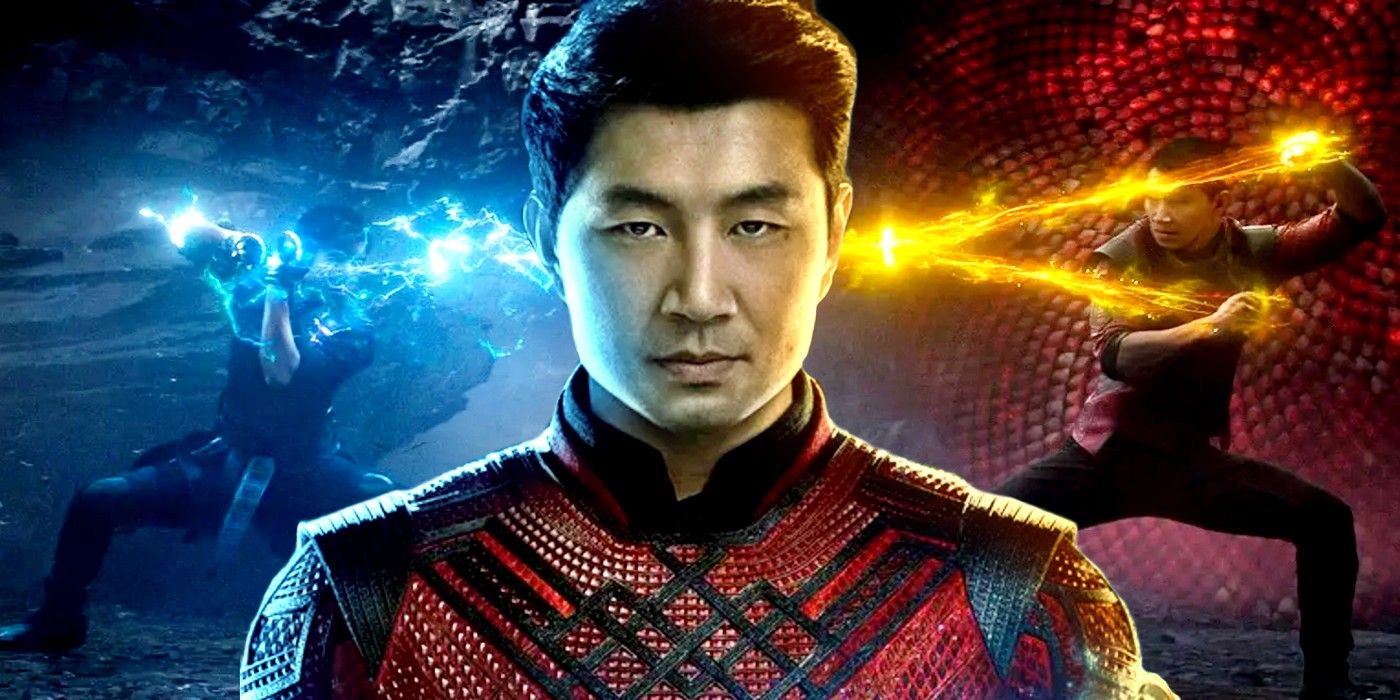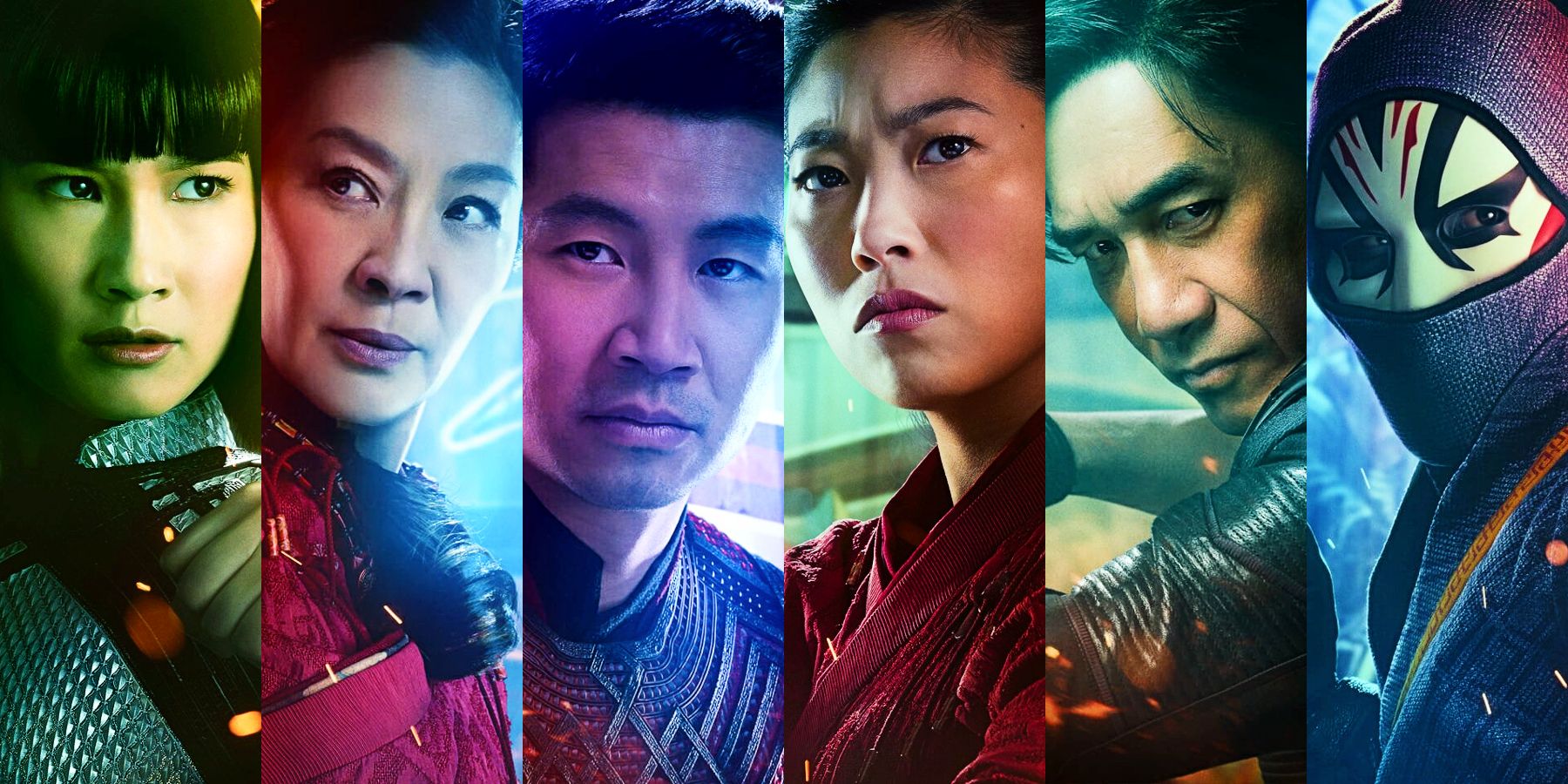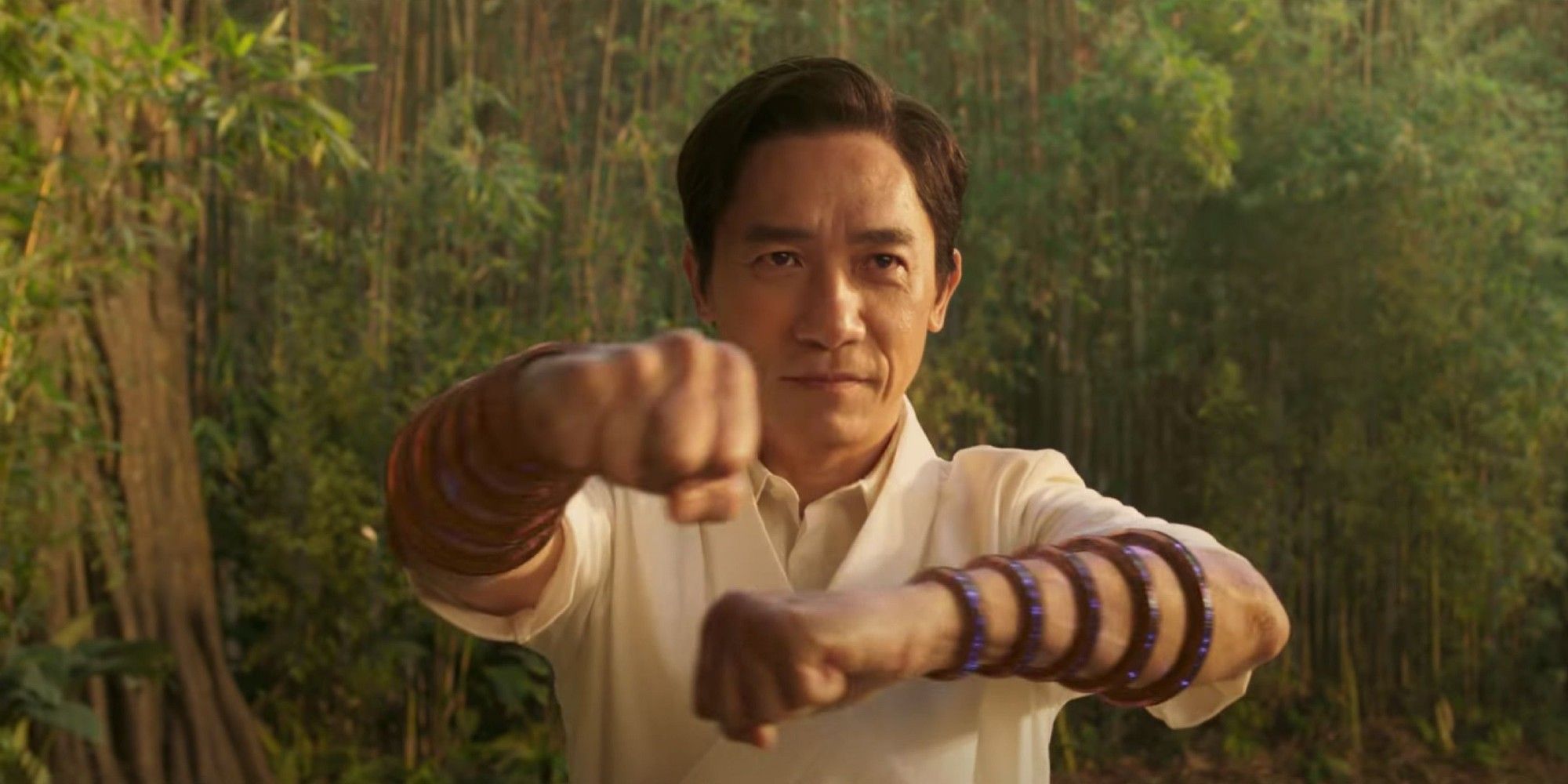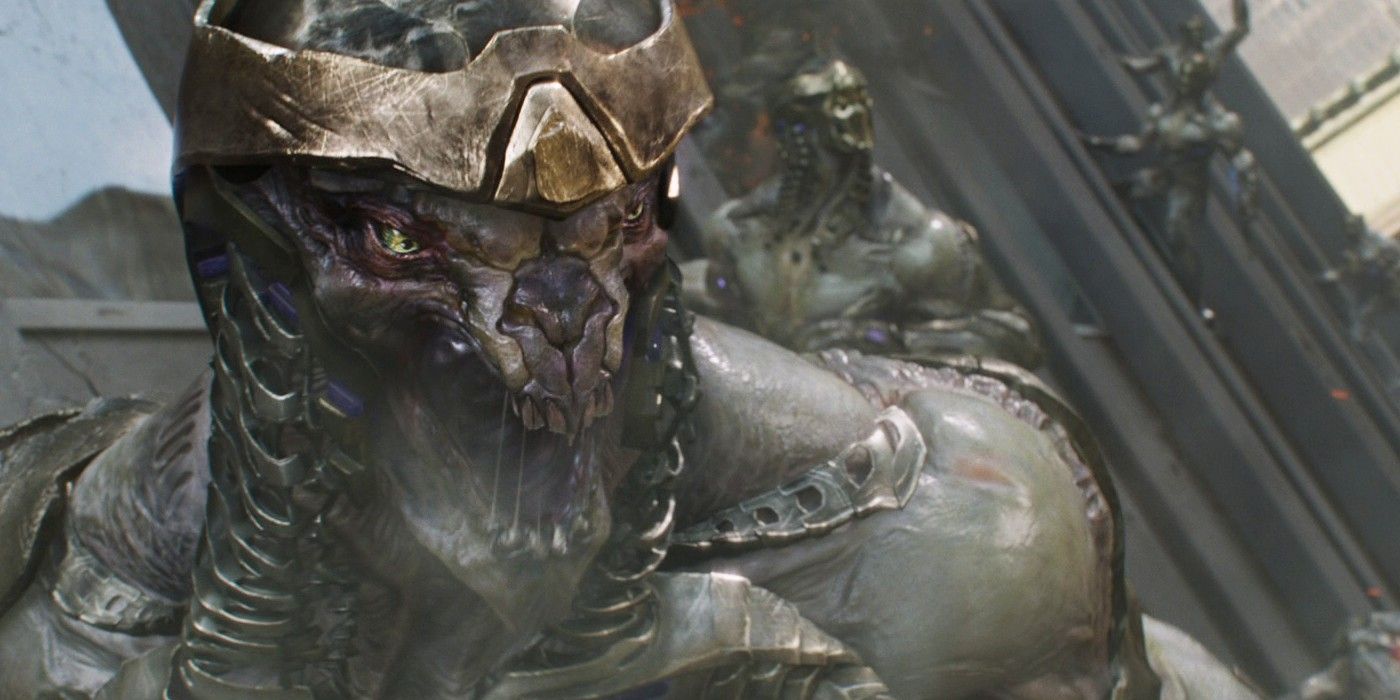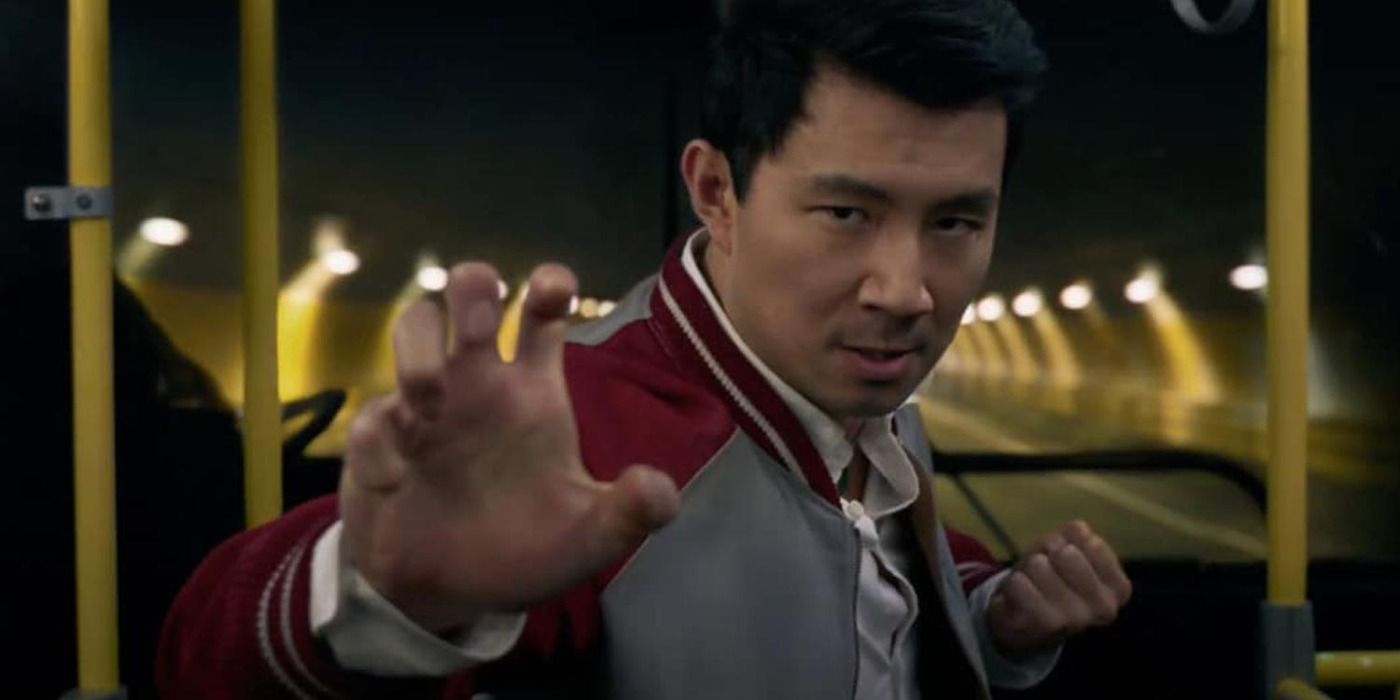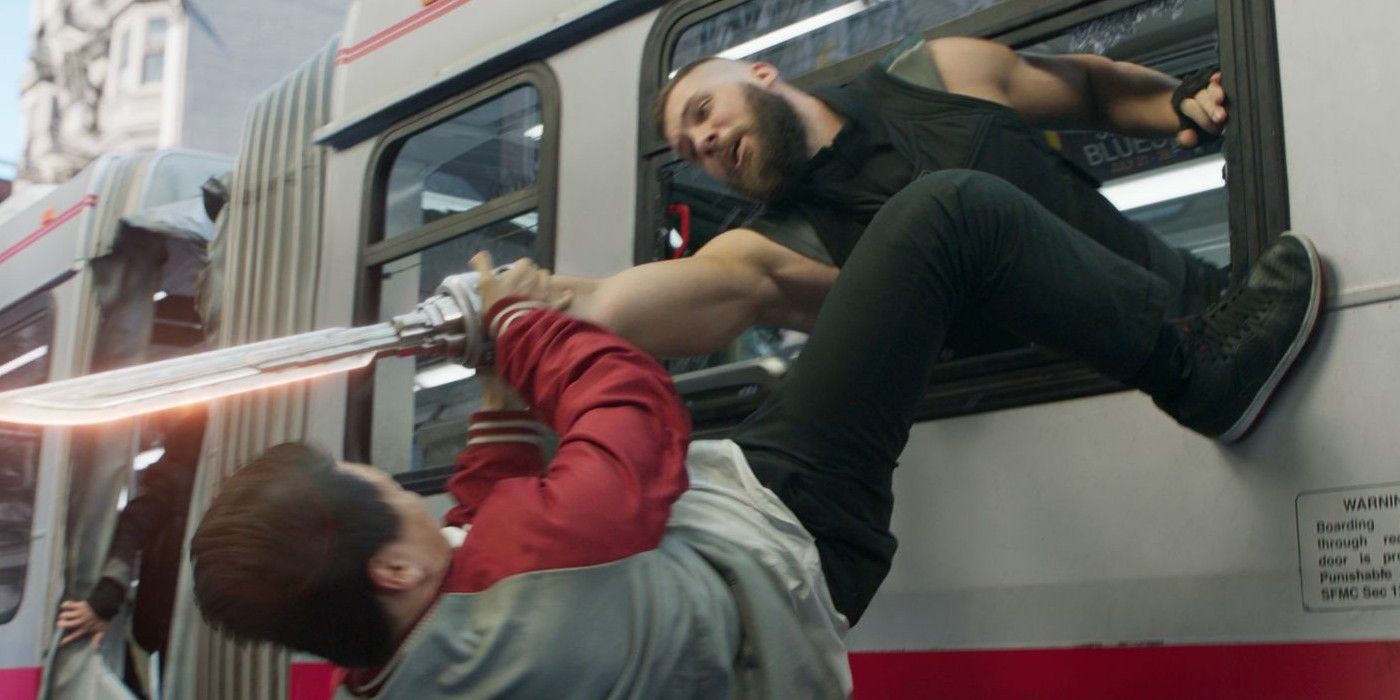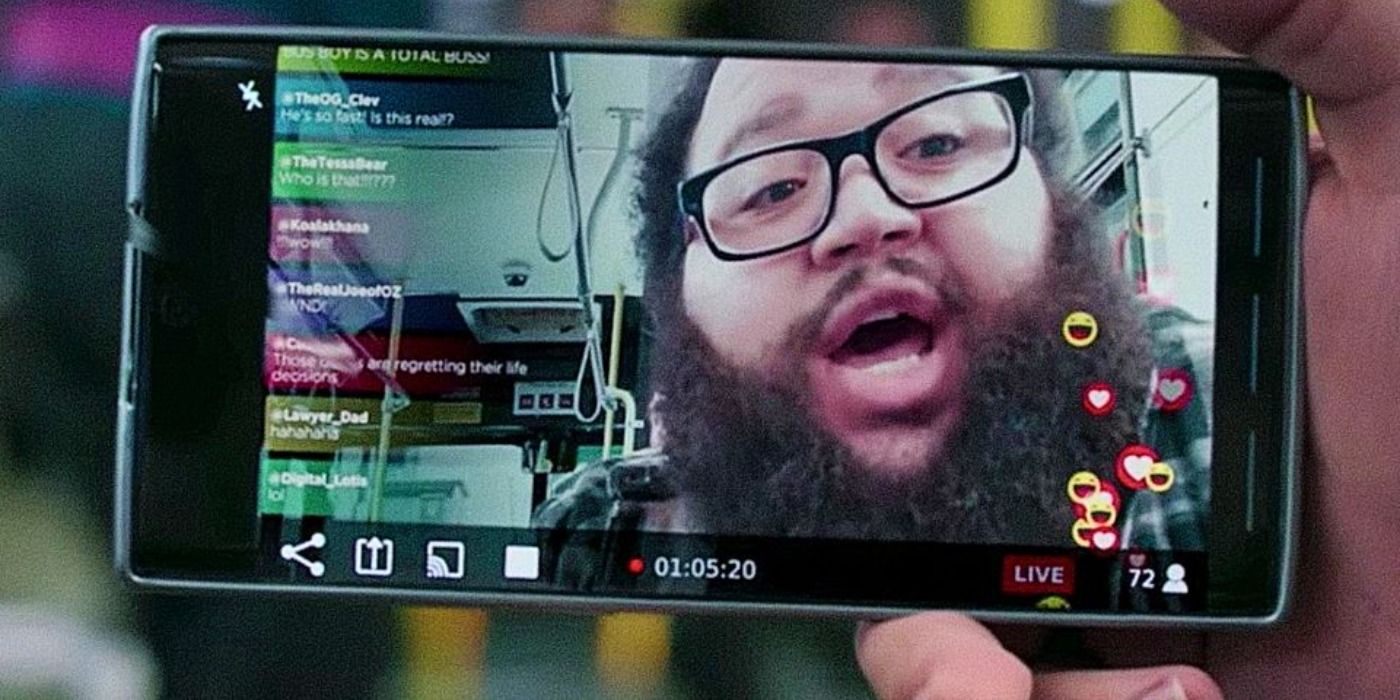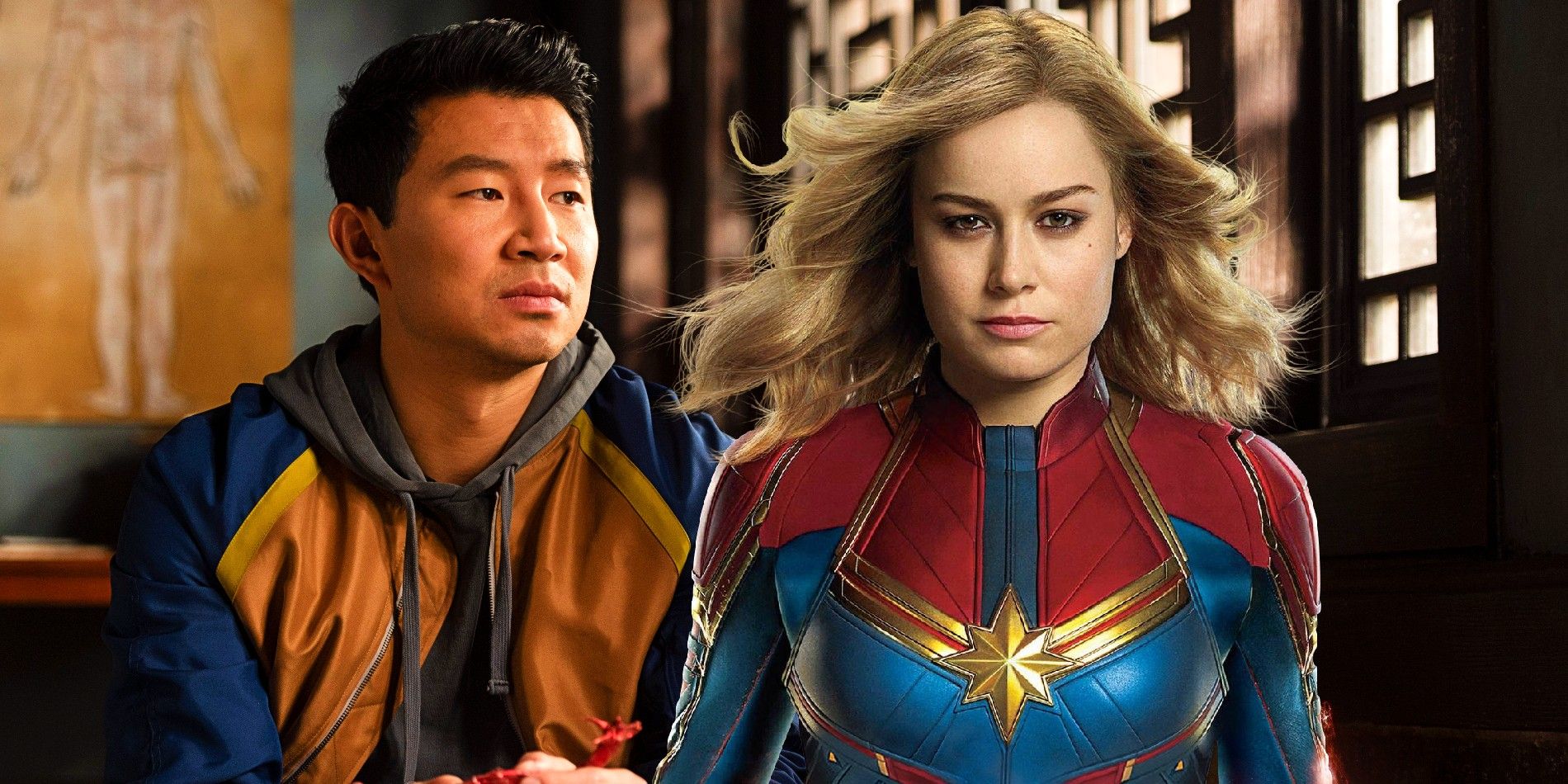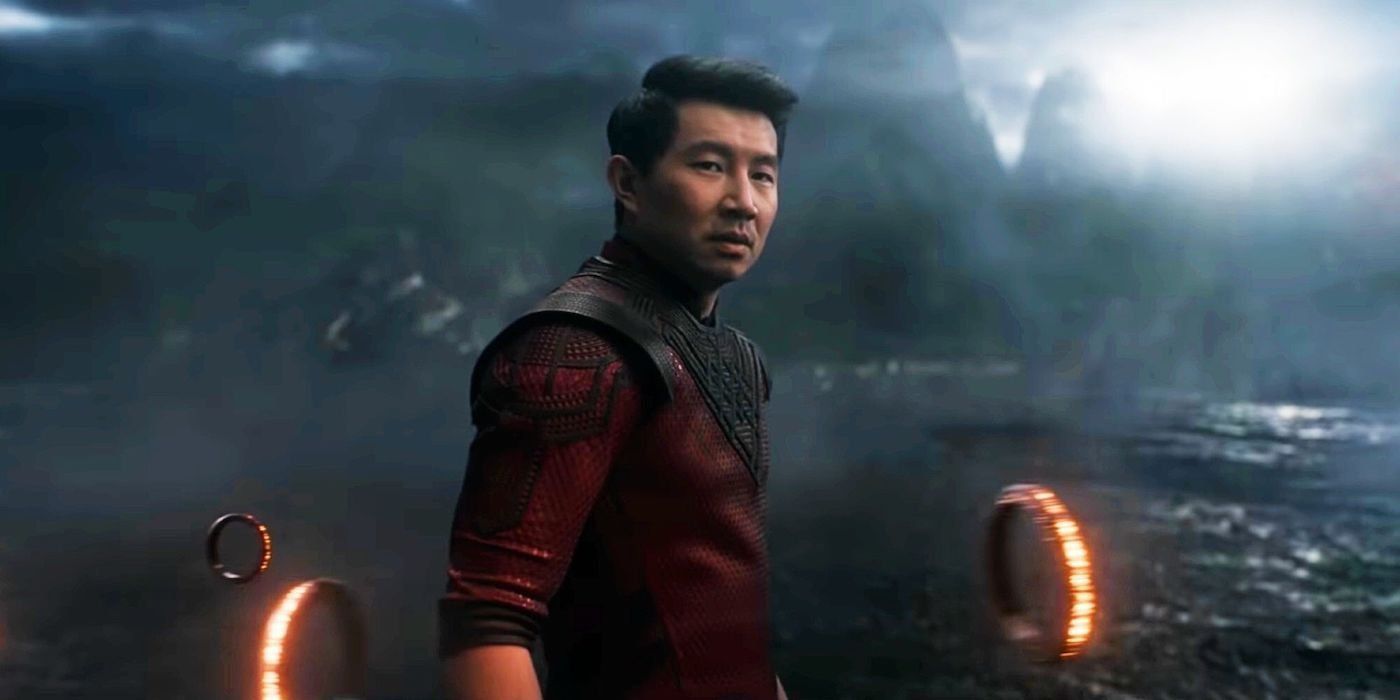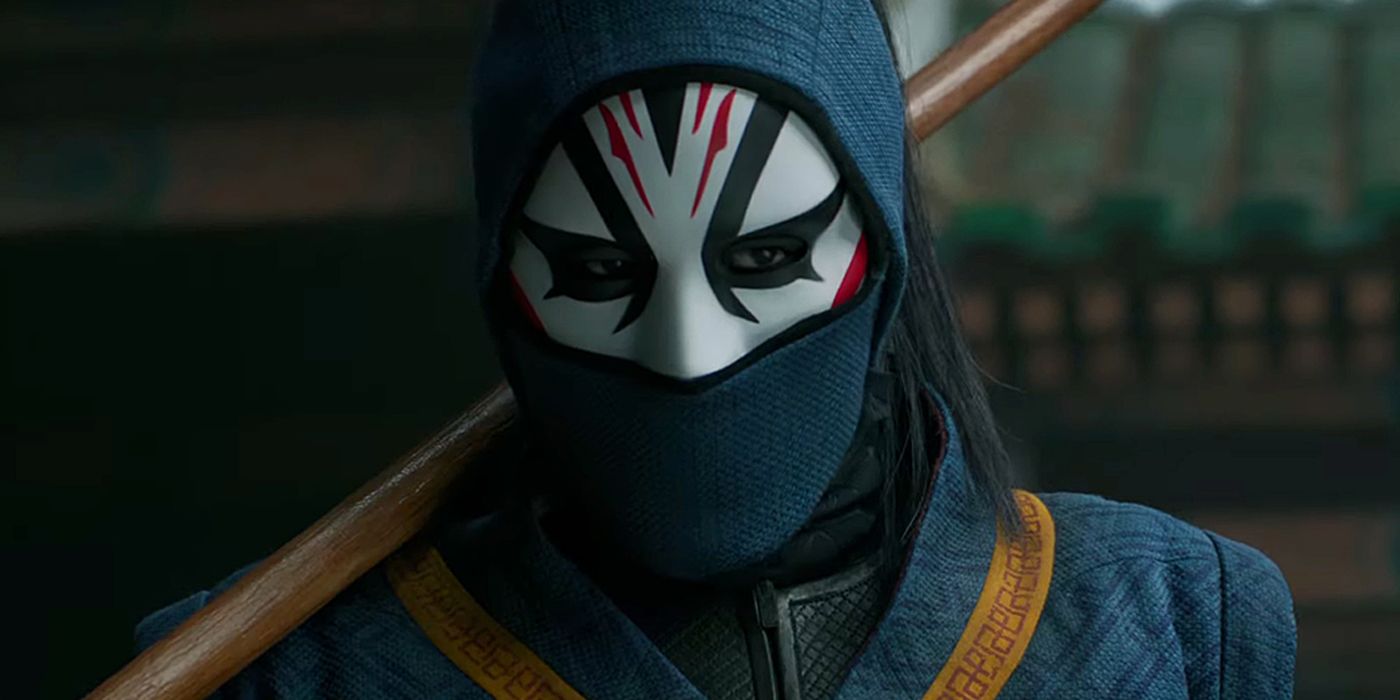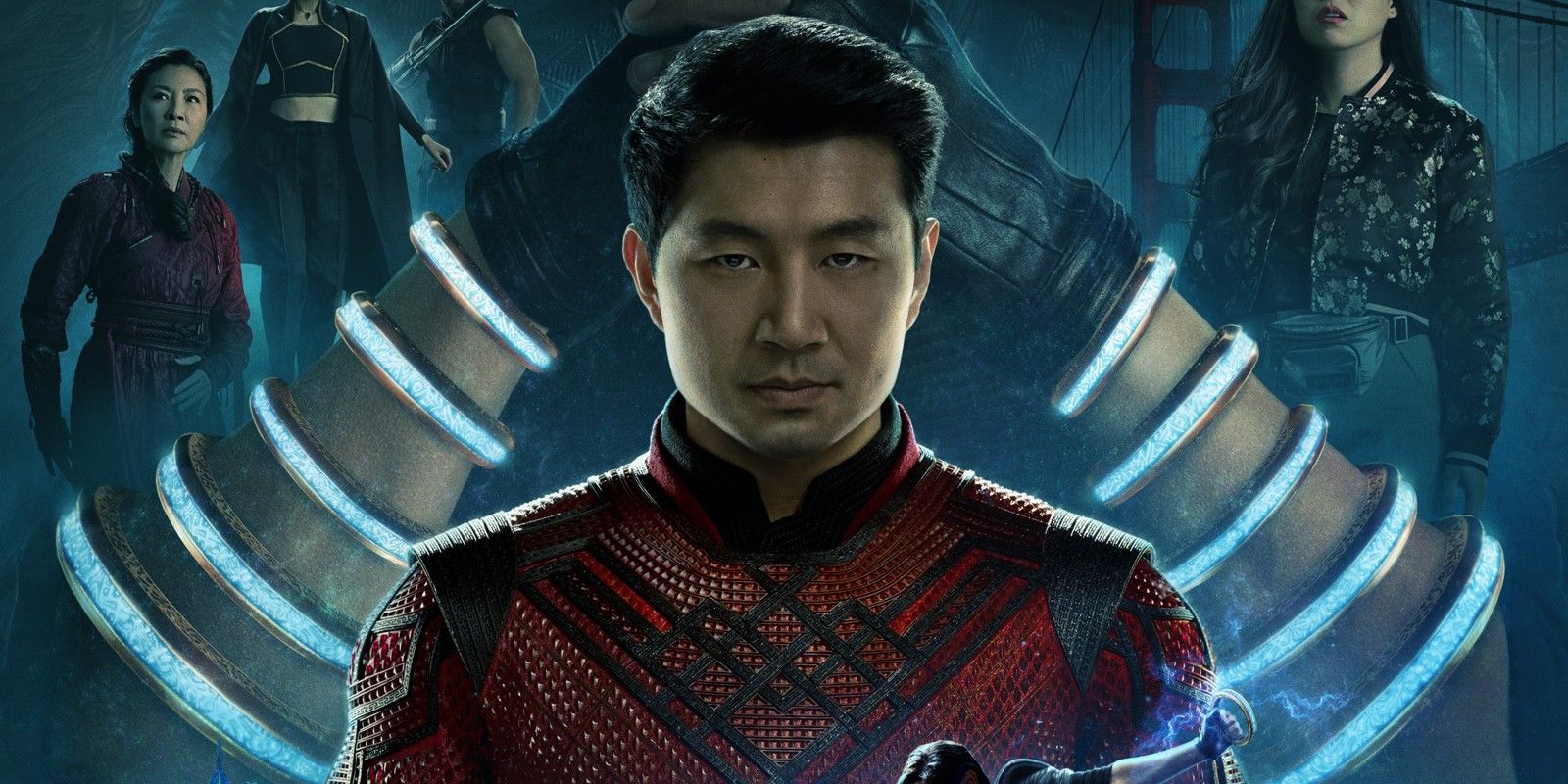Warning: Contains SPOILERS for Shang-Chi and the Legend of the Ten Rings.
While Marvel's Phase 4 has been mostly backward-looking for its first outings, in terms of reusing character, Shang-Chi is finally here to change things up. The MCU's first martial arts fantasy epic is certainly different and unquestionably bold, but does it work, and will Marvel fans take to it as one of the strongest origin stories so far? How does it stand as a new branch for the MCU to nurture in other words?
For the most part, Marvel's MCU origin stories have been particularly strong. Even ignoring the usual issues with over-emphasis on exposition, comic book movie fans love to see new superheroes take up the mantle. It's traditionally been in MCU sequels where struggles have been more obvious - apart from Captain America's seemingly bullet-proof sub-franchise of course. In that respect, Shang-Chi had reason to be confident, even with a vastly different focus to the other MCU kickstarter projects. But at the same time, with the expectations of fans built on 24 movies and billions of dollars, aiming for something different was never going to be completely straightforward. Particularly with the issues presented by the industry at the moment.
Early box office results suggest Shang-Chi is going incredibly well and a 90%+ Rotten Tomatoes review score into opening weekend is always a very good sign. That is a testament to what Simu Liu and director Destin Daniel Cretton have achieved. That said, though, Shang-Chi has some teething issues, even for a movie that is very good overall. In the interest of balance, here's everything that worked incredibly well in Shang-Chi and the few areas where it perhaps missed the mark.
Worked: Shang-Chi's Cast Is Brilliant Throughout
As with any MCU origin story, there's a lot of necessary exposition in Shang-Chi. The majority of this is conveyed via flashback, which works, and could have been a little jarring was the narrative importance of the past not been handled well. That typically means there is less space for character, which is often particularly true of a movie with such major fantastical elements and action set-pieces, but not in Shang-Chi. Simu Liu positively radiates charisma, even as he guards his character (to protect his secrets), promising an awful lot more in the MCU's future. Awkwafina's Katy is not just the audience's eyes in Shang-Chi's world, but she's also the breakout character (the same way Ratcatcher was in The Suicide Squad and Michael Pena's Luis was in Ant-Man). The fact that she returns in future, as set up by the end, can only be a good thing. Add to that, the performances of legends like Tony Leung and Michelle Yeoh - not just in combat, but in quieter moments - and it's a truly great group.
Worked: Shang-Chi's Human Villain Is Complex And Sympathetic (Like The Best)
Speaking of Tony Leung, his Wenwu - wrongly named The Mandarin or "The Real Mandarin" throughout the marketing - makes a strong claim to be one of the best human MCU villains alongside Michael B Jordan's Killmonger. Even faced with being overshadowed by a colossal winged demon in the final act, Leung's dramatic chops back up his stunning martial arts work to create a bad guy who is not only empathetic but compelling in his cause. He is in pain, haunted by his own part in his wife's death, and corrupted by the power of the Ten Rings and what lies beyond Ta Lo's portal. Though he also had a more traditional hunger for power before meeting Shang-Chi's mother, he puts that one-dimensional motivation aside to be a man pushed to desperate, catastrophic measures by his grief. To contrast that with how Iron Man 3 originally portrayed the supposedly same character is night and day.
Didn't Work: The Third Act Has The Same Issues As The Avengers
While the dynamic between Wenwu, Shang-Chi, and Xialing is great, Shang-Chi is best when it's examining their personal story. Unfortunately, the shift in gears in the third act that sees them arrive in Ta Lo and face the impending arrival of the Dweller-in-Darkness feels like a similar situation that undermined how good The Avengers was. Suddenly adding the Dweller as the final act "big boss", plus an army of otherwise unmentioned flying soul sucker drones is very much like Whedon's use of the Chitauri army to escalate matters for the heroes in his final act back in 2012. That's not to say there aren't impressive moments in the battle - and who doesn't want to see what amounts to the MCU's first kaiju on kaiju battle? - but there's not quite enough tension when the personal story is ripped away.
Worked: Shang-Chi's Fight Choreography Is Incredible
The benefit of adding a martial arts master to the MCU is immediately obvious as soon as Shang-Chi gets into its combat groove. The opening fight sequence on the bus careening down San Francisco's famous hills is remarkable and it's far from the best. Elsewhere, Tony Leung, Simu Liu, Andy Le, Fala Chen, Meng'er Zhan, and young Arnold Sun (a revelation as teen Shang-Chi in training flashbacks) all put together gravity-defying martial arts set-pieces that are unlike anything seen in the MCU. So far, the MCU brand of martial arts has looked more like the bruising style of Florian Munteanu's Razor Fist, but here there's balletic grace mashed up with the physical drunken boxer humor of Kung Fu Hustle (referenced lovingly not only in a poster in Shang-Chi's wall, but also in the casting of Yuen Wah as Ta Lo Master Guang Bo. The slow-motion can get a little over-indulgent, but there's no doubting the obscene skill involved.
Didn't Work: Some Of Shang-Chi's CGI Is Poor
Despite the mastery of the fight choreography and the incredible environmental designs that go into Ta Lo in particular, some of Shang-Chi's CGI is on a par with the worst moments of Black Panther's notorious early trailers. There's more than one regrettable ragdoll sequence, including part of the otherwise excellent bus fight, and while the Great Protector battling the Dweller-in-Darkness is a fun spectacle, some of it is too muddied by an attempt to presumably hide the heavy effects work involved. The moment that sees Shang-Chi run up the otherworldly beast, in particular, is near-impossible to follow.
Worked: Shang-Chi's Humor Manages The Right Balance
The MCU has been accused before of being too focused on shoe-horning humor in to meet the expectations of the lucrative family audience, and even some of the best Marvel movies too have clunking gags in them. Shang-Chi, though, brilliantly balances humor and heart and drama. Awkwafina's Katy and Sir Ben Kingsley's return as Trevor Slattery take care of much of the leg work, but Simu Liu's comic background helps a great deal, though his jokes come less frequently than his "sidekicks". There's never any attempt to really undermine heavy, dramatic moments with humor, which is where Marvel stumbles a lot and crucially, Shang-Chi being an insider on his lore means there's no reductive mockery of the mythology behind his powers and his family.
Didn't Work: Shang-Chi's Mid-Credits Scene Is Needlessly Distracting
Shang-Chi is a stand-alone almost to the same degree as a Phase 1 movie, and that's great, but there are obviously expectations to tie it back to the rest of the MCU, and - as ever - use its end as a stepping stone to what comes next. Had that ended with Wong's recruitment of Shang-Chi and Katy and the impromptu, hilarious karaoke sessions, that would have been perfectly fine, but then Shang-Chi's mid-credits scene goes too far. Captain Marvel and Bruce Banner's inclusions feel too much like big-name appearances for the sake of familiarity, particularly because both add very little to the discussion on the Ten Rings other than a bemused shrug. They're there so that Marvel can remind the audience that there's always something bigger coming, but it didn't need to be done this way when Wong's mysterious tease of what he needed Shang-Chi for was satisfying enough.
Related: How Marvel Retconned Its Iron Man 3 Mandarin Controversy
Worked: Shang-Chi Works As A Stand-Alone (Including The Iron Man 3 Link)
Now that there are 25 MCU movies and a number of Disney+ Marvel shows to throw into the mix, the requirement to do Marvel homework before each release is getting to the point where casual audiences simply will not do it. Luckily, Shang-Chi exists on its own merit strongly and without the crutch of the rest of the franchise, meaning any pre-watching is limited. Yes, there are nods to the post-Endgame world in posters about Snap Anxiety, and Wong and Tim Roth's Abomination appear, but the only substantial link is to Trevor Slattery's arc in Iron Man 3, and he is played in such a way that he's no more than a jester brought along to help Morris become the next most memeable Marvel character. His arc is entirely explained within Shang-Chi anyway, so that serves as all the required reminder. The reason this is such a big plus for Shang-Chi is that it has to be how Marvel moves forward when establishing new MCU IPs, like X-Men, Fantastic Four, Blade, and whoever else comes along: not everything has to be tied to the nostalgia machine. Shang-Chi proves it's still possible to strike out onto a new branch without everything being a set-up for when the next cameo will happen.
Didn't Work: Two Major Shang-Chi Villains Are No More Than Plot Furniture
While Tony Leung's Wenwu is great (particularly in how he retcons Iron Man 3's Mandarin mistake), and the fight sequences involving both are hugely entertaining, it's difficult not to feel that both Razor Fist and - even more so - Death Dealer aren't rather undernourished. The former's complexity is as limited as you might expect from someone who drives around in an SUV with his own name spraypainted on the side (even when it's achingly hinted for about two seconds that he fears for his master's mental health), and the latter is a plot device killed off for effect. Neither is given anything like the charisma to hide their lack of development and backstory and it's a real shame. At least Razor Fist's likely return might afford more of an opportunity.
Worked: Shang-Chi Is Bold, New, And Exciting (Just When The MCU Needs It)
Not only is Shang-Chi a great stand-alone, but it is fundamentally different from what MCU fans have seen over the past decade. While it has the same hallmarks of familial conflict and daddy issues as lots of previous Marvel movies, it balances that with martial arts, new mysticism, a dragon, a giant kaiju-like demon, and the suggestion that more lands like Wakanda can exist beyond portals to other realms. There can be no accusations of deferring to type or Shang-Chi being somehow formulaic, and after 24 films, that is an impressive thing to be able to state. It also makes forthcoming new creative endeavors - like Eternals - that have a similar burden of expectation to be new and exciting a lot easier to back to succeed with the audience. The start of Phase 4 has looked backward a little more than some may like, but Shang-Chi is bold and unafraid to be wildly different to its stable-mates, and that should give future MCU creators cause for confidence.

